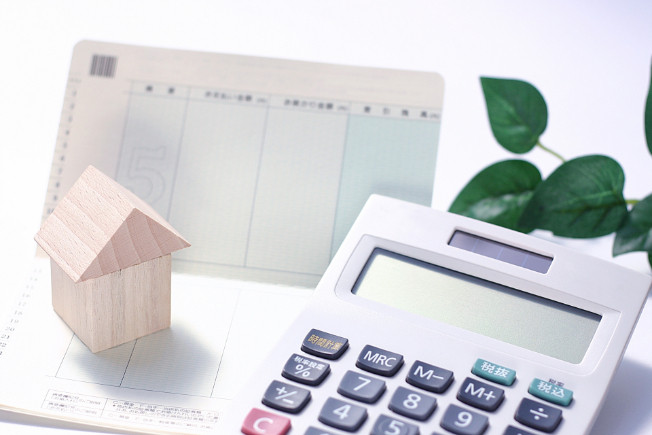Known for its real estate, Japan is home to valuable houses in the world. In every location in the country, it is guaranteed that houses, either foreclosed or brand new, would be plenty. Take a look at the average cost of these properties and make a good investment!
Table of Contents
Equity in Japan
Real estate is a valuable asset for investment. Owning a piece of land or a housing property, for instance, can give the owner a considerable amount of income or assets. This does depend on whether the property value increases or depreciates over time. Selecting the best location can be beneficial whenever liquefying these tangible assets. On the other hand, these real estate properties can be maximized as well, depending upon the owner's long-term mindset. Take, for example, a house.
In recent years, Japan witnessed a new trend towards land development, especially in major cities such as Tokyo and Osaka. The increasing foreign population in the country may also determine housing market price changes. Also, another major indicator of changes within the market would be the anticipated increase in house surplus. With an aging population, the overall housing market might fluctuate as well.
Regardless of these indicators that may determine the costs of housing in Japan, it is important to take a look at the different benefits of acquiring a house in Japan. Primarily, Japan’s low-interest rates entail valuable mortgage payments. Instead of renting a house or an apartment, the returns of buying one would be more beneficial to the owner. Another benefit is that it could be rented out for additional income. Especially if you are a foreigner who frequently goes back to your origin country or travels abroad, you can maximize profits by letting your house be rented by other people - with certain restrictions. Lastly, since it is tangible property, it could be handed down to your children in the future. Knowing all these things, one may ask, how much would a house in Japan cost?
Writer's Pick
Costs of buying a house in Japan

Two major factors determine the costs of housing properties in Japan - the demand and the location of the property. First, demand is a major indicator for every commodity. It is directly proportional to sales prices. As mentioned above, the market trends of demand due to the increasing foreign population in the country and the declining Japanese population can determine future housing prices in Japan. Second, the location of the property is an important indicator of the value of the land. For instance, Tokyo has a higher land value as compared to Chiba. This also drives the potential interests of the property in the future, which could be another factor.
Another matter that should be taken into account would be the type of property you intend to buy. Is it an apartment, condominium unit, or a stand-alone house? Each type certainly brings with them a diverse set of maintenance fees. The buyer must be mindful of this as well because buying a real estate in the country puts on the owner's responsibility to maintain the property. And this is a crucial factor, especially if one is considering the purchase as an investment.
Here are some of the average property prices by type in 2019 (these were calculated based on the properties that Flat 35 managed in 2019 and are a rough estimate of necessary funds in each area):
| Area |
New Apartment/ Condominium |
Custom built |
Ready-built |
Second-hand |
Second-hand Apartment |
|
All of |
45 million |
35 million |
35 million |
26 million |
31 million |
|
Tokyo |
50 million |
38 million |
39 million |
32 million |
34 million |
|
Kansai |
43 million |
36 million |
33 million |
23 million |
26 million |
|
Tokai |
41 million |
35 million |
30 million |
22 million |
22 million |
※Japan Housing Finance Agency, “2019 Flat 35 User Survey”
These prices may be subject to factors of appreciation or depreciation over time. Also, the factors mentioned earlier are the definitive aspects by which these prices are subjected. For example, higher demands in the cities of Tokyo drive the prices in their respective areas to increase. Moreover, the economic activities in the areas may be a big reason for the costs of the houses.
Tips to consider
In buying houses, one should be considerate of his or her preferences. This is very important because it would qualify the buyer's intent for his or her choice of property. Questions such as what does the property serve? Would it provide housing or just merely a foreign investment to be visited frequently or infrequently? Furthermore, in selecting the location and the type of property, it is important to take a look as well how it suits your needs, the immediate and future needs. For instance, what could be the difference in buying a housing unit in Osaka from buying a condominium unit in Tokyo? You need to examine factors such as employment, transportation accessibility, health and security matters, and the likes. If you have children, then thinking about school location and reputation is also important.

There are no strict regulations against foreigners who intend to buy a house in Japan. But of course, there is necessary documentation needed in order to be eligible in dealing with an agreement. Documents such as passport and affidavit of non-residence are the two main documents needed. The former serves as an identification document. Meanwhile, the affidavit serves proof that the buyer is not a citizen of Japan but intends to purchase a real estate in the country.
The general agreement will necessitate a broker. Japan's property law states that any transaction in buying a house should be dealt with with a registered real estate broker. Especially if the buyer is from another country, it is the broker's responsibility to perform duties concerning legal agreements. Of course, the service comes along with its respective fees
For foreign buyers, paying different property taxes should be done through agents. Considering that acquiring a permanent residency status in the country may take a long time, plus the processing of the documents and necessary property taxes upon acquisition of the property could be tiresome. This service can be then provided by Japanese tax agents for smooth transactions and proper documents and tax handling. In the setup, the owner will look for their agent to settle monthly or annual property taxes whenever deemed necessary. This definitely comes with a service fee.
Summary

Placing your hand over a tangible asset such as a house in Japan could be a valuable move. Educating oneself with the average costs, the factors that contribute to such costs, and the proper procedure and things to ensure in buying a housing property would be great preparation for investment. Always see to it, however, that the complete decision is still determined by your own preferences.




















.jpg)












